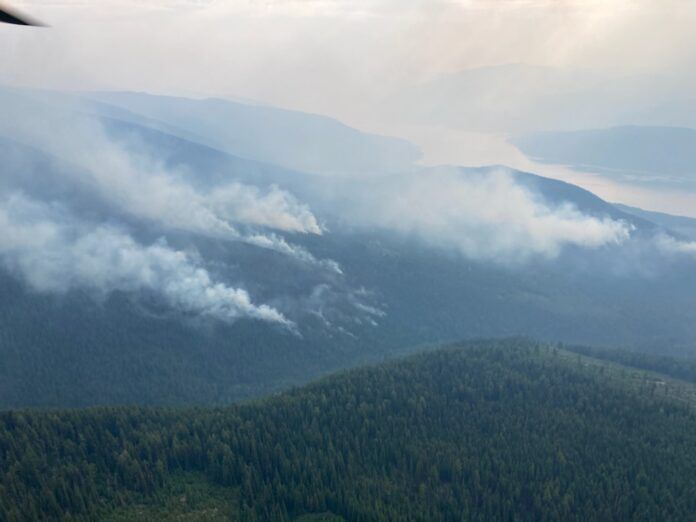Residents around the province, particularly those with pre-existing health conditions, face a heightened health risk due to wildfire smoke lingering in the air.
With 388 active wildfires in B.C., provincial government officials implore the public to take air quality seriously.
Wildfire smoke is especially risky for those with health conditions such as chronic obstructive pulmonary disease (COPD), asthma, heart disease or diabetes and people with respiratory infections.
“Anyone who requires rescue medication, especially for respiratory conditions such as asthma, should ensure they have supplies on hand,” said B.C. government officials. “If you have been evacuated, or do not have enough medication, visit your local pharmacy for an emergency supply.”
Pregnant people, children, infants and older adults also face a greater risk of health impacts from smoke.
“Smoke can make it harder for your lungs to get oxygen to your blood,” said the B.C. government. “It can also irritate the eyes, nose, throat and lungs. Fine particulate matter in wildfire smoke matter carries the greatest risk to people’s health because it can be inhaled deep into the lungs and cause inflammation and irritation.”
B.C. government officials said there are a few steps you can take to avoid exposure to poor air quality:
- Keep your doors and windows closed, as long as the temperature is comfortable.
- Purchase a portable HEPA filter or make one yourself by taping an air filter onto a box fan. Instructions on how to make a DIY air filter can be found on the BCCDC website (linked below).
- Spend time indoors, such as in community centres, libraries or shopping malls.
- Refrain from overexertion that leads to heavy breathing while outdoors.
- Stay hydrated.
- Consider wearing a respirator or other types of face mask when you go outdoors.
- Keep up to date with your local forecast and air quality health index.
“People respond differently to smoke. Most symptoms are relatively mild and can be managed without medical attention,” said B.C. government officials. “If you are experiencing difficulty breathing, chest pain or discomfort, or severe cough, call 811 or contact a healthcare provider. If you are having a medical emergency, call 911.”
More: Wildfire Smoke (BCCDC)




